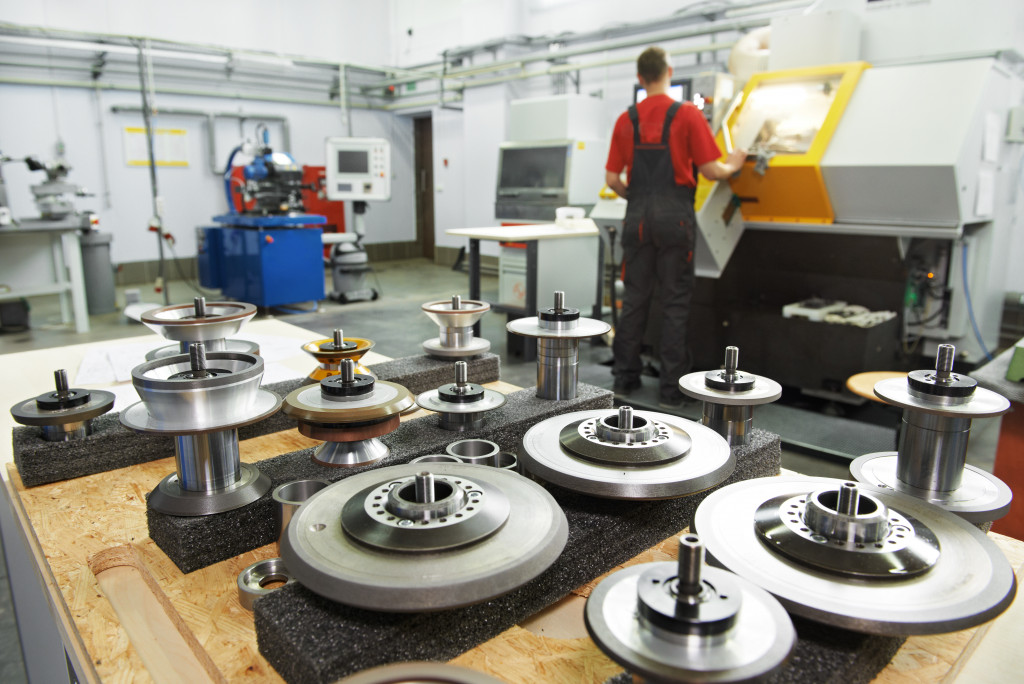There are many overheads to consider when starting or running a successful business. There are salaries, rent, and equipment to pay, among other things. However, of them all, the equipment takes a huge chunk out of a company’s cash flow. Equipment, after all, has to be maintained and upgraded regularly.
Equipment is necessary. But it doesn’t mean it’s always affordable. It’s expensive to purchase and maintain equipment, sometimes futile even. You could buy the latest models, only to find out that a better version will be released just a few months later, leaving you with inferior equipment.
Business owners don’t always realize it, but they have the option to lease equipment instead of purchasing them. In fact, many businesses can’t buy their own equipment without external financial assistance. Leasing equipment has become a viable option that many small businesses take advantage of.
If you need new equipment now or update your old one, you may be finding it difficult to decide whether to buy or lease. Each business is unique, which means your decision will be affected by what your business needs. For example, if your business is required to control stormwater pollutants, you should be cleaning your street and parking space with a proper street sweeper. Instead, you could purchase an expensive one or save costs with a commercial parking lot cleaning service.
To help you decide about matters such as this, this article can help you better understand the difference between purchasing and leasing equipment.
Which Is Better?
Both buying and leasing have their own strengths. Entrepreneur magazine compares the benefits of the two in brief here:
Having your own equipment can be a winning option. It can increase your business asset and properties. It can be costly to purchase them, but they are named under you or your business.
However, you’ll be required to pay upfront, no matter how you pay for your equipment. Sellers will often require down payment, especially for high-cost purchases.
If you take out a loan for your new equipment, you will also have to pay monthly, plus interest. You will not have monthly charges if you pay it in full cash. However, your cash flow can be affected, and you may not have enough money on hand to cover your other business expenses.
On the other hand, you can’t own a piece of leased equipment. You can only use it for the life of the lease. You’ll also still have to pay a down payment, plus its monthly fee. After the contract is over, you’ll have to return the equipment to its owner. Some contracts, however, allow businesses to purchase the equipment at the end of the agreed lease period.
If you don’t have the budget to purchase urgently needed equipment and want to conserve your cash flow, leasing is a good option for you.
Aside from the payment requirements, here are other factors to consider that will help you decide whether to buy or lease your business equipment.
Initial Cost
When factoring in initial cost, leasing is a better option, especially for businesses with a limited budget. You may still have to pay a down payment, but it’s still cheaper than buying new equipment. The only downside to this is that you’ll be paying a monthly fee for your leased equipment.

Tax Breaks
According to the law advice website, Nolo, leasing provides better tax breaks than purchasing equipment.
When you purchase equipment, you can claim tax based on a standard amount declared by your local or state law. However, if you lease equipment, you can claim the whole amount—the cost of the lease and its tax. This means you get a higher tax return with leasing compared to purchasing.
Maintenance
All equipment requires repair and maintenance. When you purchase equipment, you may have to hire professional services to have them fixed or maintained—but only if you don’t have the right technical people in your team.
When you lease equipment, maintenance services are always included in the contract.
Upgrades
Just like with mobile phones and other digital devices, equipment in business facilities and offices moves fast. Technologies in equipment become outdated even before you get the chance to use the most out of them.
You need to consider the need for upgrades. If your business requires constant equipment upgrades, you should consider leasing, which is cheaper. If upgrades are not necessary, purchase equipment instead.
Now, Should You Buy or Lease?
Weigh in what’s good for your business. Prioritize the long-term cost-effectiveness of each approach based on your business needs and goals. Finally, consider all factors mentioned above, so you can finally make a sound decision.



